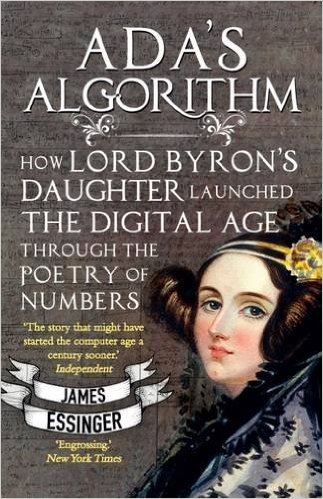What do you think?
Rate this book


256 pages, Paperback
First published January 1, 2013
Interestingly, these arguments are rarely used to question men's authorship of joint works; indeed, mental instability or difficult personalities sometimes seems to add to the reputation of male scientists and mathematicians: Nikola Tesla, John Nash and Isaac Newton to name just a few.
There has so far been no biography of Ada that fully defends the genius of her thinking, which prompted me to write this book.He does do this, where his assertions show Ada Lovelace’s contribution and place in the development of the digital age, so for this its 4 stars.


So I'm reading a book called "Ada's Algorithm" and it said that her father, Lord Byron, had a "club foot" but that this wasn't much remarked upon because so many people in the upper class had something genetically off, whether it manifested mentally or physically, because...Regency high society consisted of about 5,000 people, which meant most of them were related to each other somehow. For context, the Amish population of Lancaster County is about 30,000. Yeah. So remember THAT the next time you're watching Bridgerton: historically, all these folks were probably related. Suddenly, it makes so much sense why Gothic and Victorian literature is full of visible disabilities and madness...